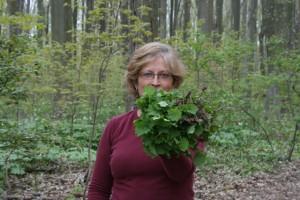Written by: Alana Westervelt, Giuliana Trovato, Joanna Hausen, Juan Felix, Kaitlyn Medcalf and Kevin Nagtegaal

Dr. Dawn Bazely is a professor of Biology at York University. She received her B.Sc in Biogeography and Environmental Studies in 1981, and M.Sc in Botany from the University of Toronto in 1984. In 1988, she received her ph.D in Zoology from Oxford University, UK. Currently, Dr. Bazely is the director of IRIS, York University’s Institute for Research and Innovation in Sustainability.
She has published over 70 journals, books, and chapters.

With an extensive interdisciplinary background, Dr. Bazely strives to make research multifaceted and collaborative; combining social and STEM subjects. She led the Canadian section of the International Polar Year project, GAPS (Gas, Arctic Peoples and Security) from 2006-2011; focusing on the potential changes of local ecology caused by the oil pipeline in the region. From 2011-2012 Bazely worked with Harvard and Oxford Universities, researching conservation issues in Southern Ontario. In 2003, Dawn received the Faculty of Science and Engineering Excellence in Teaching Award.
Dr. Bazely noted that, in Canada, the issues and concerns surrounding northern food security involve a broad range of stakeholders. However, Northern Communities are impacted the most by exorbitant food prices, and related effects such as malnutrition (PDF). Many people have been forced to leave their communities because they are unable make a living as a farmer or fisher. However, Dr. Bazely, believes that to address these issues and develop strong sustained solutions, it is necessary to share knowledge across disciplines and understand the ethical, economic and environmental pressures which are often part of the system. Lastly, the importance of traditional knowledge and experience is key to generate the most sustainable, responsive and practical solutions. It is necessary to collaborate with Aboriginal communities, researchers, policy-makers to overcome the long-standing complex challenge of food insecurity.
Dr. Bazely’s work on the International Polar Year (IPY) is of particular note. As the fourth initiative of its kind, the IPY 2007-2008 was the largest polar research program in 50 years. Taking place March 2007 – March 2009, the program included more than 60 nations and over 200 individual projects. The program sought to incorporate a variety of disciplines into a comprehensive study of the rapidly changing Polar Regions. These areas, home to more than 4 million people worldwide, embraced exciting frontiers for science as important places of study into the impact of climate change. At its conclusion, IPY 2007-2008 resulted in significant discoveries, creating new opportunities for research and development.
If you are interested in learning more about Dr. Bazely and her research, or the IPY, check out these websites:
Gas, Arctic Peoples, and Security (GAPS)
Orange juice image sourced from Wikimedia Commons
Dr. Bazely photo supplied by herself